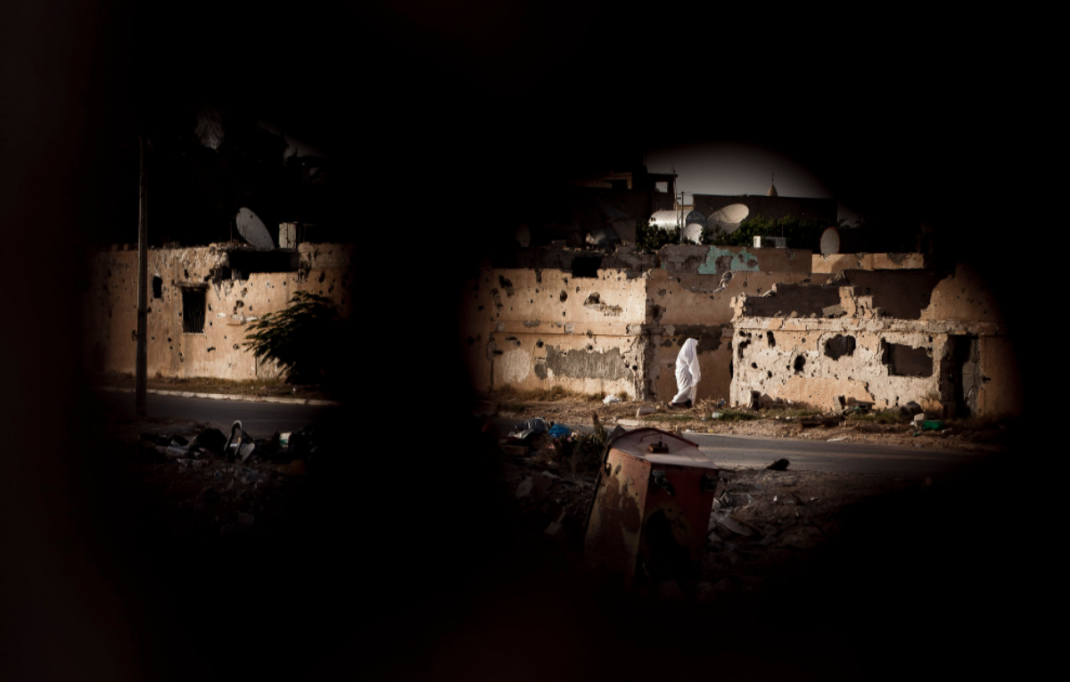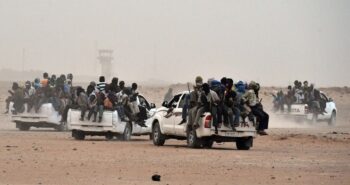By Saadun Suayeh
Let us not mince words. The situation in Libya is surrealistically complex and extremely fraught with danger. The aspirations of the Libyan people to democracy and the establishment of a modern, civil state seem far from realisation in the foreseeable future. The country is deeply divided, torn by conflicts and rampant lawlessness.
Three governments vie for authority: the Transitional Government in the east, under the presidency of Al Thini, pledging allegiance to the parliament in Tobruk; in the west there is the internationally recognised government of Faiz Sarraj, known as the Government of National Accord (GNA), seated in Tripoli; and the self-proclaimed Salvation Government of Khalifa Al Ghwel, at best a shadow government, claiming loyalty to the now defunct General National Congress (GNC) and the Grand Mufti, Sheikh Sadeg Ghariani, with strong Islamic leanings.
This messy situation is made even messier by the existence of two competing legislative bodies, namely the elected parliament in Tobruk and the high state council in Tripoli. Both bodies are viewed as legitimate by the international community, being endorsed by the political agreement of Skherat. However, the agreement perceives their roles to be complementary, rather than competitive.
The sharp divisions plaguing the executive and legislative branches of government are accentuated by the chaotic military scene. The forces of General Haftar in the east, loyal to the Parliament, claim to be the sole, legitimate force worthy to be called the true Libyan National Army (LNA). These forces, in fact, led ferocious battles against extremist elements in the east, an endeavour which ultimately led to the “liberation” of Benghazi.
Similarly, the largely Misrata-dominated forces known as Bunian Marsus, in the west, loyal to the GNA, have similar claims to legitimacy as being the nucleus of the Libyan army. These forces led a brave battle against Isis in Sirte, which lasted for six months, virtually eliminating Isis elements not only from Sirte but from most of western Libya.
A delegation representing Bunian Marsus had recently paid a visit to Moscow and held talks with high Russian officials. This is an interesting development, given the fact that Russia is viewed as mostly an ally of General Haftar.
Because of these bitter political and military divisions, coupled with relentless infighting among military factions and militia groups, as witnessed recently in the confrontations in the southern region of Fezzan, the Libya economy has been in sharp decline.
The time to save Libya is now. Failure to do so will have dire and tragic consequences for Libya and its neighbours
The oil industry endured severe blows, the Libyan gross national domestic product stands now at less than half of what it used to be a few years ago, the once impressively large Libyan reserves of foreign currency dwindled, the Libyan dinar dropped dangerously in its real value against the dollar and the euro, with liquidity at Libya banks registering an all-time low.
Libya’s small, suffering population certainly deserves better. But while most Libyans stoically endure these hardships, the political, military and militia leaders continue their bickering and petty quarrels, oblivious to the common good of the country. Admittedly there are international and regional powers at play which, to various degrees, exploit the Libyan situation and set Libyans against each other.
However, in the final analysis, Libyans themselves are to blame. If Libyans show real resolve to help themselves, putting their differences aside, ridding themselves of egoistical desires and dreams of grandeur, with the national interest as their uppermost occupation, regional and international powers will assist them because Libya’s immediate European and Arab neighbours all have a vested interest in a united and stable Libya.
In his statement to the Security Council, on April 20, Martin Kobler, the UN envoy to Libya, spoke frankly and transparently about the situation in Libya. He said that compared to the optimism that followed the December 2015 signing of the Skhirat agreement, he now sees “…frustration, disappointment, sometimes anger and often it is justified”.
He admitted that military groups are filling the “power vacuum” in Libya, warning that history did not tolerate vacuum. Nonetheless he reiterated his belief that the Libyan Political Agreement (LPA) was the only viable option for a political solution, though it was open to amendment. There was no plan B in his opinion.
He further added that all important stakeholders were committed to the LPA including General Haftar and the speaker of the Parliament, Ageela Saleh.
Although I wish I could share Kobler’s conviction in the viability of the LPA, I think he should have had the courage to propose as a complementary measure to the LPA, the necessity of holding new general elections as early as this summer to elect a new parliament. It is obvious that the parliament in Tobruk is largely dysfunctional and deeply divided.
The government of Sarraj can continue in the interim as a caretaker government until the newly elected parliament either endorses it, or calls for the formation of a new government. The new legislative elections should also pave the way to presidential elections in early 2018.
A committee of legal experts should also be formed to draft a new constitution, guided by the largely progressive 1951 constitution, in its amended version.
It may, of course, be objected that holding general elections in a deeply divided country, with a fragile security environment, and no effectively functioning police or army, may prove to be a very difficult, if not an impossible exercise. This is indeed a legitimate concern.
However, if these elections were to be mandated by a Security Council resolution under chapter 7, clearly stipulating strict international observation with guarantees from all the Libyan stakeholders to commit to the process, and supervision by the United Nations as the guarantor of peace and security, this exercise in democracy will have a fair chance of success.
It is important to mobilise the efforts of the civil society organisations, the local municipal authorities, and the tribal elders to raise the public awareness of the vital importance of these elections in Libya’s evolution towards democracy. Furthermore, any UN resolution taken in this regard should clearly indicate severe sanctions and punitive measures to be taken against those who in any way attempt to obstruct the electoral process.
As Kobler rightly told the Security Council, the time has come for the international community to move from “containment” to “engagement” vis-à-vis Libya. Indeed, there is a moral responsibility for the international community to do so. Nato intervened in Libya under a UN mandate effectively putting an end to the previous regime. It is, therefore, unacceptable to leave Libya to its own devices at this critical juncture of its history.
The time to save Libya is now. Failure to do so will have dire and tragic consequences for Libya and its neighbours. If no solution is reached by this summer, it may indeed prove to be a “Libyan summer of discontent” sending shock waves all over the Mediterranean.
***
Saadun Suayeh is a former ambassador of Libya to Malta.
___________




